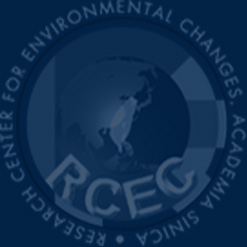


Overview of the four solutions in Fudeken. (1) permeable pavement; (2) plant microbial fuel cell; (3) bio-filtration basin; (4) rain garden. By August 2020, Fudeken Park had worked with stakeholders to deliver four interventions: a permeable pavement, plant microbial fuel cells, a bio-filtration basin, and a rain garden. The installation uses the knowledge of scientists, engineers, ecologists, government, NGOs, and the local community to implement solutions within the project framework.
Abstract
There is growing awareness that nature-based solutions (NBS) prevent negative effects and secure ecosystem services. However, the potential of NBS to provide intended benefits has not been rigorously assessed. Water, food, and energy (WFE) are essential for human well-being. This study highlights the importance of NBS in terms of water, food, and energy. A set of on-site NBS that includes permeable pavements, plant microbial fuel cells, bio-filtration basins, and rain gardens is used to determine the contribution of NBS to the environmental and economic development of urban environments. The results of this study show that NBSs benefit an urban environment in terms of water treatment, stormwater retention, food production and energy generation, carbon sequestration, pollination, sedimentation retention, and cultural services dimension. This research highlights an urgent need for the integration of water, food, and energy plans to ensure that NBSs contribute to the environment and for the conservation of ecosystem services.
Main Outcomes
This study determines the benefits of a NBS in terms of water, food, and energy. It considers water, food, and energy systems as a whole and determines the linkages with associated NBS. It implements a NBS in the planning and management of water, food, and energy policy and determines the benefits of using a NBS using field data and ecosystem services accounting.
The study site is located in the Fudeken Restoration Park in Taipei City in northern Taiwan. For decades, Fudeken Park has been used for waste disposal and landfill. Fudeken Park is well suited as a case study to determine the effect of a NBS because it has had a strong impact on the energy and water systems, both directly and indirectly. These resources are highly intertwined in the site and green placemaking is used as a NBS to increase urban climate resilience.
An analysis of the case studies in Fudeken Park and the results for regulating values on a per hectare per year basis are analyzed. The highest values are for pollination (2.14 million per year). Sediment retention is also highly valued (0.88 million per year). Carbon storage contributes the least (0.37 million per year). The nonmarket benefits of regulating services are shown in research for permeable pavements (11 million per year), plant microbial fuel cells (15 million per year), bio-filtration basins (13 million per year), and rain gardens (15 million per year).
There is a wide range in the nonmarket values, reflecting differences in the regulating and cultural services. The analysis of ecosystem services shows the importance of nonmaterial values, particularly cultural services, for four NBS implementations. The net benefit of ecosystem services for the NBS for the study area is 58.4 million per year, which is greater than the costs of the NBS at 1.5 million. An NBS program is a logical alternative for cost versus benefit.
Key points
More information